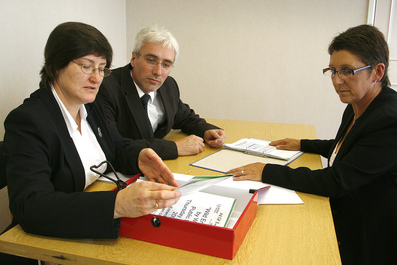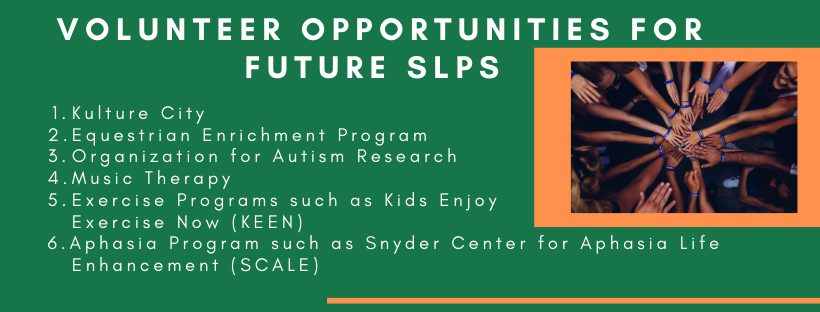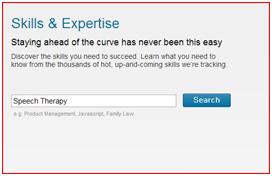|
Here are the links for possible volunteer opportunities listed above:
1. Kulture City: https://www.kulturecity.org/ 2. Equestrian Enrichment Program: https://www.teriinc.org/programs/equestrian/ 3. Organization for Autism Research: https://researchautism.org/get-involved/volunteer/ 4. Music Therapy: https://www.theconnectedcitizen.org/index.php/volunteer-opportunities/music-therapy 5. Exercise Programs such as Kids Enjoy Exercise Now (KEEN): https://www.keengreaterdc.org/volunteers 6. Aphasia Program such as Snyder Center for Aphasia Life Enhancement (SCALE): https://www.leagueforpeople.org/scale
0 Comments
This post was a collaboration with Katie Millican from SLP Echo. Special Thanks to Katie for providing a lot of great tips that are pertinent to our favorite topic, Resume Writing. Katie Millican, B.S. Ed., is a second year SLP graduate student at the University of West Georgia. She is moving to Alaska to complete her Clinical Fellowship experience in the Matanuska-Susitna Borough School District for the 2013-2014 school year. She is the author behind http://slpecho.wordpress.com/ where she writes on topics to help inform future and current SLP graduate students, as well as iPad apps for use in therapy.  I remember asking other students in my cohort what their resume looked like. Asking, “Did you put XYZ on there? How did you describe it? Is it considered work experience if you didn't get paid?” When writing a resume, don’t try to re-invent the wheel. There are resources at your disposal to lessen the confusion of resume design, organization, and content. Organization and Structure Purdue University's Online Writing Lab (OWL) offers outstanding advice for designing the overall look of a resume. First, scroll through the Resume Workshop Presentation for every section of a basic resume and how to compose a unique-to-you resume. Then, check out their Resume Design post to learn about the Quadrant test, using columns, font selections, and the 20 second test. Tailoring an SLP Resume Tailoring a resume means highlighting strengths and weaknesses which make you uniquely qualified for the position. Consider the employer – Are you applying to a school district or health care employer? Each place of employment might have a different need for posting the position. While many people keep one resume for every job they apply to, tailoring can make you stand out. Now, here are some basic guidelines for tailoring a resume: 1. Review the Purdue OWL structure and organization of a resume 2. Include the basic factual information from previous clinical experience and/or internships (i.e. name of employer, dates worked, location, supervisor, etc) 3. Now, as you search for a a desired SLP position posting online (when available), save and refer back to the description. For instance, below is an example pulled from an online posting for a school-based SLP. 1. Once you decide to apply, pin-point the main skills and requirements the employer is looking for based on the description provided. For example, in the above listing, “research” seems to be a large emphasis in this school district, as many bullet-points highlight evidence, journals, statistical analysis, and data collection. a. Often, job postings are vague or limited to “Seeking full-time SLP for in-patient rehabilitation” or something to that effect. In that case, I would use the ASHA Scope of Practice for pin-pointing notable skills for mention relevant to previous experience. 2. On your resume, under each experience, include verbatium verbage from their own description as it relates to your clinical experience. To expand on the example above, for instance, you might put something to the extent of: Obviously, you don’t want to make things up if your job never included the duties, but then again, almost every SLP job includes evidence-based approaches, working with culturally and linguistically diverse clientele creating short and long term goals, and working under educational or government regulations like IDEA and HIPAA. It’s all in the wording! Keywords and Action Words are KEY It is important to develop a list of keywords and action words to incorporate into your resume. There are many websites that provide a list of keywords and action words under various categories. The importance of these words is they highlight the skills that you possess and draw the employer to your resume. Examples of how to incorporate keywords and action verbs into your resume: 1. Keywords: Intervention, strategies, family Action Verbs: Educated, facilitate · Educated family members of individuals with Aphasia on specific intervention strategies to facilitate active involvement 2. Key Words: Graduate students, speech pathology, clinical Action Verb: Supervised · Supervised graduate students in speech pathology program during their clinical rotations 3. Key Words: confidential documents, filing, accurately Action Verbs: Organized, maintained · Organized and accurately maintained filing system of confidential documents Boston College and Wake Forest University organized a list of action verbs that could be incorporated into your resume . Boston College’s Resume Action Verbs Wake Forest University’s List of Action Verbs for Resumes and Professional Profiles In addition to descriptions under jobs, Linkedin is a great resource to use to develop keywords to incorporate into your resume. To get to the Skills and Expertise Section on Linkedin, follow the steps below: Log in to your Linkedin Account and click on More (located in the top toolbar) 1. In the Drop down menu under More, click on Skills & Expertise 2. When you get to the Skills & Expertise screen you can type in a keyword and other similar skills will populate based on what you typed into the search box. How Long Should My Resume Be? At some point, a transition from one to two page resumes lends itself to three and four page resumes. The more experience, professional development, and skills acquired automatically increases the length of a resume. However, I think the Purdue OWL’s 20 second rule still applies, no matter how many pages. Employers or Human Resource people want to see relevant experience and how recent/dates, education level, professional development, and other components correspond to the job. The above job description and duties example appeared on the Disctrict of Columbia Public Schools website for a position as a school-based Speech-Language Pathologist, posted May 2, 2013. Additional Resources: Resume Builder Thank you Andrei for sharing this resource "340+Resume Action Verbs And Power Words [Complete list] https://novoresume.com/career-blog/top-10-most-powerful-action-words-for-resume Sample Resumes:
 Putting the time in to learn a trade and making your way successfully through a Speech-Language Pathology grad program are only half of what it takes to become a full-fledged SLP. You may know the practices, but now, you have to step out into the real world, where competition is around every corner and finding steady work and substantial pay is a full-time job. But there are ways to prove your worth and earn the job of your dreams. Beef Up Your Resume Whether you have a Master’s degree or a Bachelor’s, competition is stiff. There will always be someone out there with more experience and better credentials, but that shouldn’t deter you. SLP jobs come in all shapes and sizes, so outfit your resume with solid, specific, and impressive material that will make you stand out. Remember, a cover letter is sometimes more important than the resume itself, so brush up on your writing skills and stand out. Do Some Traveling This doesn’t mean take a vacation. However, there are plenty of great opportunities pooling in various areas of the country, and only travel therapy staffing companies have access to all of them. These are agencies that weigh your personal and professional interests to find travel speech therapy jobs that best suit you. These may be in other cities or states, but all come with considerable pay and fantastic benefits. Not only is this a great way to gain experience for bigger jobs, it saves the trouble of actually going out and searching for a job on your own. Be Extraordinary Too many resumes are tossed in the trash before the hiring manager gets a chance to look at them. Don’t be afraid to be outgoing, and don’t be afraid to express your uniqueness. Know when to limit yourself in an interview, and recognize when you have the opportunity to be memorable. Whether it’s a formal interview or a casual meeting with a hiring manager, leave a positive and professional impression. Special Thank you to Advanced Medical for taking the time to write this article for New SLP Grads. About Advanced Medical Advanced Medical is a therapy staffing company that provides physical therapy, occupational therapy and traveling SLP jobs in specialties and locations nationwide. Focusing on quality and integrity, Advanced Medical has emerged at the forefront of the travel therapy staffing industry. Get the latest updates from Advanced Medical on Facebook, Twitter or Pinterest.  A couple weeks ago, I had the distinct honor of helping one of my Language-Impaired students with her resume. It took us about two weeks’ worth of extended therapy sessions to create a resume that met her needs despite her lack of professional experiences, but we did it. Besides the feeling of satisfaction that I got from putting a vibrant young woman on track for her first job, I learned that the key to drafting a winning resume is to write from the viewpoint of a hiring manager. If you were the person who had to spend thousands of dollars in advertising in hope of recruiting a top candidate for your company, what skills and personality traits would you be looking for? According to Ramit Sethi, author of “I will Teach You to Be Rich,” a hiring manager will spend roughly 10 seconds scanning your resume. What do you want your resume to say about you? Do not fall into the mental trap that you will land a job because speech-language pathologists are in high demand and carelessly put your resume together. Turn your resume into a magnet for the best companies by doing the following: Avoid content indigestion (Ramit Sethi recommends that you make each word earn its place on your resume and if the information is irrelevant for the position you are applying for, leave it off your resume) Keep your resume neat (stick with Times New Roman or Arial fonts; no fancy graphics) Target it for your specific audience (recruiters from various public/private organizations or speech therapy business owners) Have an objective (what type of position would you like and in what clinical setting; know what you want) Avoid overused phrases (we are all hard workers, team players and highly qualified; focus on how your clinical skills will benefit your future employer) In sum, the secret to writing a resume that gets you noticed is to take on the perspective of your future employer. Remember, you would not want to read endless lists of people’s descriptions of how they traded their time for money. Briefly state your objective, highlight your value and attract the job of your dreams. Special Thanks to Espinoza for writing this article about resume writing! About Author: Espinoza Pierschke is a savvy Speech Therapist, Certified SEO Copywriter and author of “Windows Can Become Doors: A Blueprint for Beginning Speech Therapists.” She is passionate about making a difference and teaching fellow therapists how to survive life after graduate school. |
Categories
All
Archives
November 2021
|
||||||||||||
 This work is licensed under a Creative Commons Attribution-NonCommercial-NoDerivs 3.0 Unported License. |
© Copyright 2010-2020 futureslps.com All Rights Reserved Worldwide




